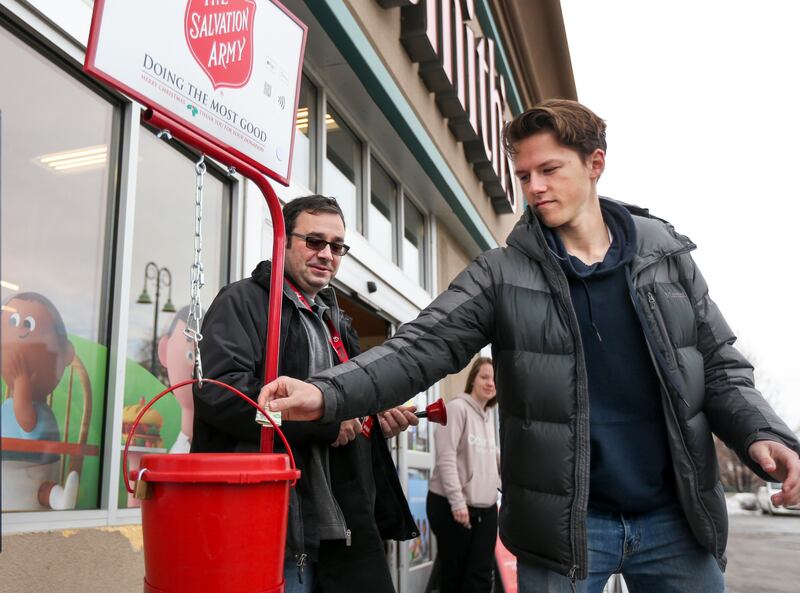SALT LAKE CITY — Apparently, Americans are losing touch with the idea that their nation is exceptional.
In the latest American Values Survey, only 40% agreed with the statement “God has granted America a special role in human history.” The percentage of people who completely disagree with that statement doubled since the last presidential election in 2016.
This is troubling. People may be reacting to the way they perceive the nation has acted in recent years, but it’s also true that people tend to act the way they see themselves, which suggests a sort of downward cycle.
But is this true?
I’m not going to analyze the political or social factors that may be driving this change in perception. What I will argue is that, in at least one aspect, Americans continue to act as if they have an exceptional role, regardless of what they may tell others.
That aspect is charity. Americans continue to voluntarily give more to charity, help their neighbors more and give of their time more than any other people in the world. This is not a small matter. It shows that people still understand the key to happiness.
And, not to brag or anything, but the most generous state in this generous nation is Utah.
That was reinforced this week when Wallethub.com, a personal finance website, published its latest list of the most charitable states. The Beehive State finished first overall, as well as first in the category of its volunteer rate, its percentage of donated income, the percentage of the population that donated time and the percentage who donated money. Minnesota finished second and Maryland third.
The least charitable state, if you’re curious, was Arizona. Apparently, proximity doesn’t always breed familiarity.
This isn’t shocking news. Utah has topped lists of charitable states for years. The religiousness of its residents plays a big role, but that isn’t the only factor.
Two years ago, the website move.org, which provides advice on moving-related issues, noted Utah has a massive amount of charities, “from environmental conservation efforts to humanitarian outreach.”
A skeptic may say that Utahns today are showing their hypocritical side when it comes to this reputation for brotherly love. The general disdain for mask-wearing in a pandemic, motivated in many cases by politics, has, experts say, made the spread of COVID-19 worse.
It may be hard to quantify this, although an August poll commissioned by the Deseret News and the Hinckley Institute found that 42% said they were comfortable going without a mask, while a similar poll in June found 35% of Utahns saying they wouldn’t wear one even out of deference to the concerns of others.
Certainly, recent protests outside the governor’s home demonstrate an extreme side of this view.
Some might say you have to set politics aside to get at people’s real character, while others would say real character is revealed by politics. That’s a troublesome chicken-and-egg argument I also would rather not analyze right now.
What is much more certain, however, is the relationship between charity and happiness.
More than a decade ago, Arthur Brooks, a prominent social scientist and writer, spoke at BYU about the relationship between giving and prosperity. People who give the most also tend to subsequently prosper the most, he said, noting that he found this relationship difficult to explain until he spoke with someone who studied the psychology of charitable giving.
“We’ve known for 30 years that people who give get happier as a result,” this man told him. Happy people are more productive people. They’re harder workers, which makes them more attractive to people looking to hire or to find business connections.
“Charity brings happiness, and happiness brings success,” Brooks said. “You simply can’t find any kind of service that won’t make you happier.”
Getting back to the country as a whole, Wallethub noted that Americans gave a combined $449 billion in 2019 and that 77 million people volunteered in some form during the year, providing the equivalent of $167 billion in service, and that 69% of cash donations came from individuals, not corporations.
The Philanthropyroundtable.org website said the vast majority of donations come from people of modest means, although wealthy people give, too.
And if you think bad economic times have hurt this characteristic, think again. Investopedia reports that donors are giving at a record pace during the pandemic.
If that isn’t a sign of exceptionalism or of people who see themselves as having a special role in human history, I don’t know what is.



